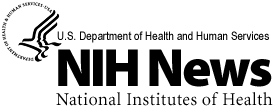|
NHLBI TO LAUNCH FRAMINGHAM GENETIC RESEARCH STUDY
A comprehensive genetic research study to identify genes underlying
cardiovascular and other chronic diseases will be launched by the
National Heart, Lung, and Blood Institute (NHLBI) of the National
Institutes of Health (NIH) in collaboration with the Boston University
(BU) School of Medicine.
The new research effort, the Framingham Genetic Research Study,
will be part of the NHLBI’s long-running Framingham Heart
Study (FHS) and will involve up to 500,000 genetic analyses of the
DNA of 9,000 study participants across three generations. The NIH
National Center for Biotechnology Information, part of the National
Library of Medicine, will help develop a study database that will
be made available at no cost to investigators throughout the world.
The database will provide opportunities for other experts to search
for associations between genes and diseases.
“This important study will take genetic research in the Framingham
study to the next level - accelerating discoveries on the causes,
prevention, and treatment of major chronic diseases,” said
NHLBI Director Elizabeth G. Nabel, M.D. “Using the latest
technology, researchers will be able to obtain more information
about the connection between unique genetic variations in DNA and
cardiovascular disease risk factors as well as the genetic basis
for heart attack, stroke, and other chronic diseases.”
Since 1948, the Framingham Heart Study has studied the health of
many of the Massachusetts town’s residents. The study has
been the source of key research findings regarding the contributions
of hypertension, high cholesterol, cigarette smoking and other risk
factors to the development of cardiovascular disease. Researchers
at the NHLBI and BU, including physicians, geneticists, statisticians
and epidemiologists, have conducted this important research in partnership
with the Framingham Heart Study for decades.
“This unique opportunity to increase our knowledge about
health and disease is made possible by three generations of Framingham
study participants who have donated their time to advance medical
research,” said Karen Antman, M.D. Dean of Boston University
School of Medicine and Provost of Boston University Medical Campus.
BU and the NHLBI have a longstanding commitment to protecting the
confidentiality of Framingham Heart Study data and the privacy of
the participants and their families. The Framingham Heart Study
has obtained detailed informed consent from study participants for
genetic research. An important priority of the new study is to ensure
the privacy and confidentiality of the medical information obtained.
NHLBI and BU have reviewed the project along with several Framingham
Heart Study oversight boards, including an ethics advisory board.
Additional oversight will be provided by an executive committee,
which will monitor the conduct of the study. This committee will
include a participant from the Framingham Heart Study and the Chair
of the Framingham Ethics Advisory Board.
The new study will take advantage of knowledge gained from the
Human Genome Project’s sequencing and mapping of all human
genes – together known as the genome – and from the
recently completed HapMap Project, which charted the pattern of
genetic variation in the human genome.
The HapMap Project showed that common but minute variations in
human DNA occur about once in very 1,000 base pairs of DNA across
the human genome, which contains about three billion base pairs.
These variations, called single nucleotide polymorphisms (SNPs),
can be used to identify genetic contributions to common diseases.
The Framingham Genetic Research Study will use recently developed
technology that now allows rapid genotyping of about 500,000 of
these SNPS in each individual.
Computer programs will then help scientists relate these alterations
to many of the clinical and laboratory measurements made of study
participants during their examinations, according to Christopher
O’Donnell, M.D., associate director of the FHS and scientific
director of the new project. “Then we hope to identify the
genetic variations that are most strongly related to participant
characteristics such as levels of cholesterol and systolic blood
pressure,” O’Donnell said.
“In support of this project, BU and the NHLBI will apply
teams of data managers, data base administrators and its extensive
computing resources. The partnership between the Framingham investigators
and study participants is an important one and they have made major
contributions to the FHS. This new project will expand the research
possibilities, said Philip Wolf, M.D. Principal Investigator of
BU’s contract to administer the Framingham Heart Study.
“Ultimately we hope this research will lead to new treatments
and better strategies to prevent cardiovascular and other diseases,”
said Daniel Levy, M.D., director of the Framingham Heart Study.
To interview Dr. Nabel, Dr. O’Donnell, or Dr. Levy, M.D.,
contact the NHLBI Communications Office at 301-496-4236. To interview
Dr. Antman and Dr. Wolf, contact Ellen Berlin or David Goldberg
at 617-638-8491.
NHLBI is part of the National Institutes of Health (NIH), the
Federal Government’s primary agency for biomedical and behavioral
research. NIH is a component of the U.S. Department of Health and
Human Services. NHLBI press releases and other materials are online
at www.nhlbi.nih.gov. For
more information on the Framingham Heart Study, visit: http://www.nhlbi.nih.gov/about/framingham/.
|

